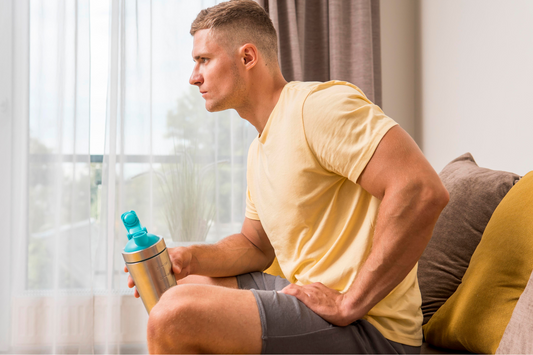Anxiety is something most of us experience at some point before an exam, a presentation, or major life changes. But when those feelings become overwhelming or constant, they may indicate something deeper. Knowing the signs of anxiety can help you take action early, before it begins to impact your health and daily life.
If you're wondering how to know if you have anxiety, this article breaks down the 10 most common signs from emotional shifts to physical symptoms of anxiety and offers practical tips for finding calm and support.
10 Common Signs of Anxiety
Anxiety can show up in subtle and unexpected ways, often going unnoticed until it affects your daily life. Recognising the early signs is the first step toward managing it effectively.
1. Constant Worry
Everyone worries now and then, but if you’re worrying most of the day about things big and small and you can’t switch it off it might be a sign of chronic anxiety. This type of worry often feels intrusive and exhausting.
2. Physical Tension
One of the earliest physical symptoms of anxiety is tension in your muscles. You might feel tightness in your shoulders, neck, jaw, or back even if you haven’t done anything physically strenuous.
3. Trouble Sleeping
Struggling to fall asleep or waking up frequently in the night can be linked to anxiety. Racing thoughts and an overactive mind make it hard for the body to rest.
4. Difficulty Concentrating
When anxiety is present, you may find it hard to focus or finish tasks. It’s not laziness your brain is often busy reacting to perceived stress or danger.
5. Feeling On Edge
If you constantly feel uneasy, jittery, or ready to snap, your nervous system may be stuck in “fight or flight” mode a core response tied to anxiety.
6. Avoidance
Are you avoiding people, situations, or responsibilities that feel overwhelming? Avoidance is a common coping mechanism and an early sign of anxiety-related distress.
7. Digestive Issues
The gut and brain are deeply connected. If you experience nausea, bloating, or frequent stomach upsets without a clear medical cause, stress could be a contributing factor.
8. Irritability
Many people with anxiety feel easily irritated or frustrated. This can be caused by mental fatigue, lack of rest, and overstimulation of the nervous system.
9. Rapid Heartbeat or Shallow Breathing
During moments of high stress or panic, the body may respond with quickened heart rate or shortness of breath. These are also typical anxiety attack symptoms.
10. Feeling Overwhelmed
If even small decisions or tasks feel like too much, it could be your mind’s way of asking for rest. Feeling overwhelmed is not weakness it's a warning sign that your mental load needs attention.
How to Manage Anxiety Naturally
If you recognise any of these signs in yourself or someone you care about, don’t ignore them. Talking to a GP or mental health professional can help you get the right support. At the same time, there are natural ways to support your mood and reduce stress:
- Practice mindfulness and deep breathing
- Get regular physical activity
- Maintain a balanced diet and stay hydrated
- Limit caffeine and alcohol
- Connect with supportive people
Vitamins for Stress and Natural Supplements
Some people find relief with targeted nutritional support. Magnesium, B-vitamins, and adaptogenic herbs have all been shown to support the nervous system during periods of high stress. If you're looking for the best supplement for anxiety, look for formulas with natural, calming ingredients that support relaxation without sedation.
At Bionutrica, we offer trusted vitamins for stress that are designed to help restore balance, improve resilience, and support your emotional well-being.
Final Thoughts
Anxiety can show up in many ways emotionally, physically, or even subtly through everyday behaviours. Recognising the signs of anxiety early can help you take back control and prevent burnout. Whether through lifestyle changes, therapy, or nutritional support, there is always hope and help.
Taking care of your mental health is a strength, not a weakness. You deserve to feel calm, capable, and supported one small step at a time.



